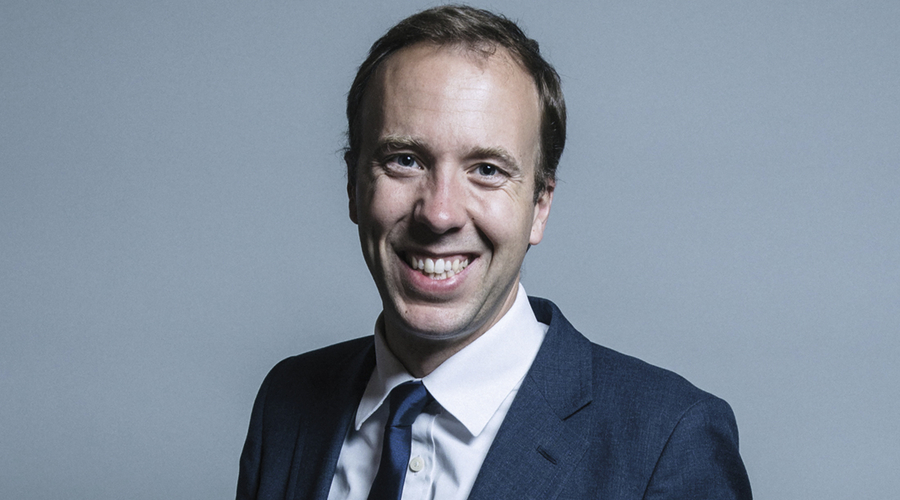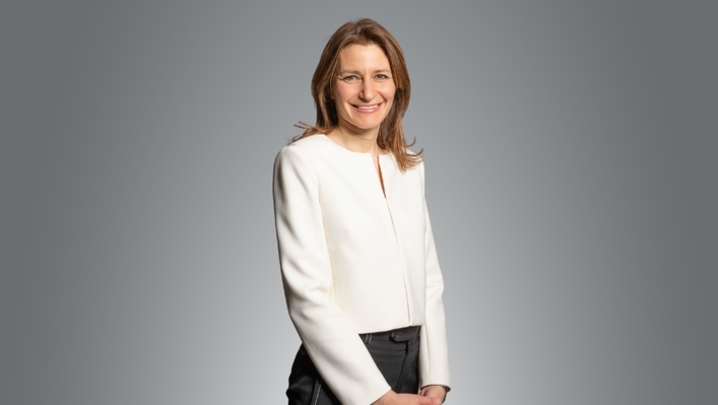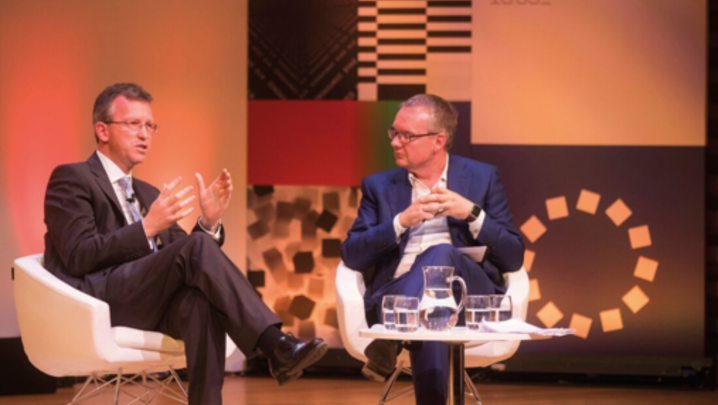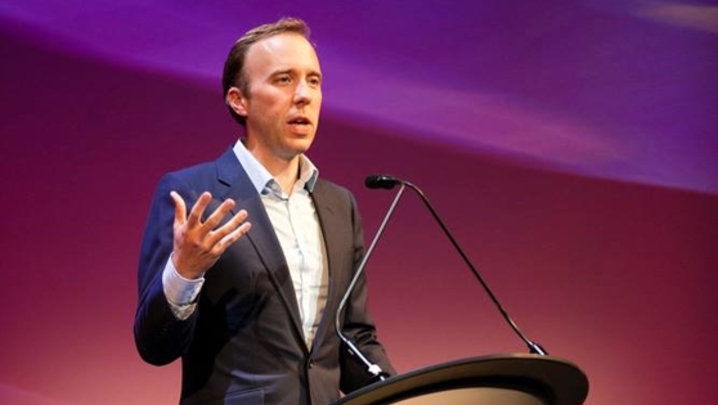Anne McElvoy profiles Matt Hancock, the new Secretary of State for Digital, Culture, Media and Sport
One of the most significant changes of Theresa May’s January Cabinet reshuffle was the elevation of Matt Hancock to Secretary of State for Digital, Culture, Media and Sport. He became the second – and most obviously technologically literate minister – to lead the department under the Prime Minister’s reign.
The former minster for new technology within the DCMS – a post he had held for the previous 18 months – is already well known to many within television and related sectors.
He was Theresa May’s choice for the DCMS job “largely on the grounds that he understands technology and its impact on the future of telecoms and the digital economy,” says one senior civil servant.
The new culture secretary reaffirmed his devotion to tech when, shortly after taking office, he launched his own app, creating an “online community” who could keep up to date with his work as a constituency MP and minister. This provoked the kind of teasing that could have been written by Armando Iannucci in The Thick Of It, but it did set people talking about the new Secretary of State.
"He is keen to show broadcasters that he takes their anxieties about the EU’s Country of Origin regulations seriously"
There is no shortage of hot policy issues that need grappling with at DCMS. During his first day in office he had to make a parliamentary statement on the BBC gender pay-gap row.
On press regulation, he has already rejected the idea of a second Leveson Inquiry, telling the House of Commons last month: “We do not believe that opening this costly and time-consuming public inquiry is the right way forward.”
One of the biggest issues that he has to deal with are the freedoms and responsibilities that tech companies have regarding the material they host – a topic on which he and his colleague Damian Collins, Chair of the Media Select Committee, are very articulate.
The re-homing of Channel 4 outside London is prominent in his inbox. Hancock has refused to say whether Birmingham is the main contender, but is adamant that he does want the broadcaster to move in order to better reflect its audience outside London.
Aside from the thorny question of pay, the BBC is always capable of producing upsets to test his department. He is largely supportive of Lord Hall’s leadership.
The culture secretary insists that Britain’s standing as a hub of digital industries (with regulation light enough to attract investors, yet responsive enough to fend off the big tech platforms’ desire to wield an unhealthy degree of interest) amounts to a vital asset post-Brexit.
Hancock cites some successes in curtailing the ability of porn sites to push their product at under-18s and in reaching an agreement with internet platforms to demote pirated material on search returns.
“Optimistic, forward-looking, modern conservatism is a natural home for the tech-savvy,” he claims. He says that, on technology, he is “liberal, not libertarian” – a defender of digital worlds but not of one without constraints. How far he will, in practice, challenge the mighty tech companies for insight into their algorithms, and what degree of pressure he is prepared to apply to curtail the less-benign aspects of social media’s power, will be the test of his vision.
On the roll-out of superfast broadband, as digital minister, the new Secretary of State was something of an evangelist. In January, he claimed that the Government had delivered on its manifesto commitment to extend superfast broadband to 95% of the UK by the end of 2017. A review of digital infrastructure conducted by the DMCS is due to report in the summer. “We want the UK to be a global leader in 5G, so that we can take early advantage of the benefits that this new technology offers,” he has said.
Matt Hancock speaking at RTS London 2016
Matt Hancock entered politics after reading PPE at Oxford and gaining a master’s in economics at Cambridge, followed by brief stints at his parents’ IT company and the Bank of England.
People like his open, can-do style. Broadcasters and other media people are impressed that he is so obviously on top of his brief and is an enthusiastic TV watcher. He watches a lot of shows on Netflix and starts his day with Radio 2’s Chris Evans show, listening with his three small children.
Among his favourite shows are Game of Thrones. “We suddenly got into it and went through all seven series in a two- or three-month period,” he told a BBC interviewer. “I can’t wait for series 8.”
He has enjoyed a dizzying rise from chief of staff to George Osborne, then Chancellor, to minister of state level – first for Business, Energy and Industrial Strategy, and then at the DCMS from mid-2016. As Chancellor, Osborne acquired a penumbra of talented, ambitious assistants and Matt Hancock became primus inter pares.
Many thought he would be out on his ear in the bitter harvest of the post-Referendum clear-out because he had campaigned for Remain. But, in the short, messy scrap for power after David Cameron’s resignation in 2015, he quickly threw his weight behind May.
Brutally put, that saved his political bacon. Few would say he is a natural May acolyte, but he is one of the ministers who provide a useful buffer zone in abrasive times. Members of this group have been dubbed the BBBs – “Bored By Brexit” – those who avoid direct confrontation and focus on life after Article 50.
However, the creative industries are in a state of permanent outrage about the impact of leaving the EU and Hancock potentially faces trouble over restrictions on artistic visas. Exacting a quick win from the Prime Minister on this issue would save him a lot of heat from this constituency.
In more granular terms, he is keen to show broadcasters that he takes their anxieties about the EU’s country-of-origin regulations seriously. Foreign companies with offices in the UK, which are currently allowed to broadcast to mainland Europe, want to maintain this privilege.
Some choices will not be easily fudged. He must rule soon on Rupert Murdoch’s planned purchase of the 61% of Sky shares he does not already own. A lengthy regulatory process should conclude in May, when the Competition and Markets Authority reports to the Secretary of State on its investigation of the Murdoch tribe’s record as bosses, both as broadcasters and as newspaper owners (an area where the phone-hacking scandal remains front of mind).
He has only a month to decide if the deal should go through – it will be the first major indication of how he approaches a testing subject, guaranteed to provoke uproar.
Yet, the situation could prove symbolic of the limited influence of UK regulators, campaigners and ministers alike. If the planned 21st Century Fox/Disney merger gets regulatory assent in the US, the CMA’s deliberations may be moot. This would also be the case if it turned out to be the rival Comcast bid that netted Sky. In the end, it is likely that Sky News’s fate will be in the hands of a US company. Globalisation, it turns out, is hard to fend off.
Closer to home, those who fear that successive governments have taken an unhealthy interest in curbing the BBC might be relieved to find that Hancock is not especially interested in debates regarding its alleged bias.
He has joked that the previous Tory government “deployed the full Whitto” – a reference to John Whittingdale, the Thatcherite culture secretary who had long campaigned to clip the BBC’s wings – only to end up with an inflation-proofed licence fee and a 10-year guarantee of its position as the dominant UK public service broadcaster.
Beyond TV, the minister is an active sportsman. He is believed to be the only modern MP to have won a professional horse race, coming in first at Newmarket in August 2012.
And, an ardent cricketer, he was part of the team that played on an Arctic pitch, in what is claimed as the most northerly cricket match ever played.
Inevitably, he is prone to political metaphors such as, “It’s easier to score runs when the bowling is hard”. In other words, he’s happiest in the thick of things and doesn’t mind a scrap. The big difference between his new job and those that provided his springboard to the front line is the level of scrutiny.
He discovered this during a night out at the Brit Awards, when he was treated to Stormzy, the award-winning grime star, acidly rapping, “Theresa May, where’s the money for Grenfell?” Hancock had to shift his expression from cheery-night-out to solemnity in a trice.
Ed Sheeran’s Galway Girl is his declared favourite song, but he cites an interest in grime music, too. At the Brits, he sat next to Ronnie Wood and found that the two have the same app designer.
Anne McElvoy is a senior editor at the Economist and a political columnist at the Evening Standard.






